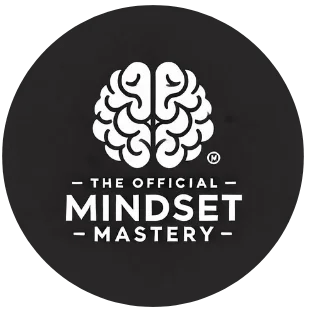Success is not a matter of chance; it’s a result of consistent, purposeful actions. Developing powerful habits can be the key to unlocking your full potential and achieving your goals. As someone who has spent years studying and implementing effective strategies for personal growth, I’ve identified 10 habits that can transform your life and propel you towards success.
The foundation of success : Daily rituals and mindset
Establishing a solid foundation is crucial for long-term success. This begins with cultivating a growth mindset and implementing daily rituals that support your goals. Research conducted by Stanford psychologist Carol Dweck has shown that individuals with a growth mindset are more likely to achieve their objectives and overcome obstacles.
One of the most impactful habits you can develop is starting your day with intention. This means waking up early, typically around 5 :30 AM, and engaging in activities that set a positive tone for the day ahead. For instance, I begin each morning with a 15-minute meditation session followed by a brisk jog around my neighborhood. This routine helps clear my mind and energizes me for the challenges ahead.
Another essential habit is practicing gratitude. Taking a few moments each day to reflect on what you’re thankful for can significantly boost your mood and motivation. In fact, a study published in the Journal of Personality and Social Psychology in 2003 found that participants who kept gratitude journals experienced greater life satisfaction and optimism compared to those who didn’t.
Here’s a simple gratitude practice you can implement :
- Keep a gratitude journal by your bedside
- Write down three things you’re grateful for each morning or evening
- Reflect on why these things matter to you
- Share your gratitude with others when appropriate
By consistently practicing these foundational habits, you’ll create a positive mindset that fuels your journey towards success.
Mastering productivity and time management
Productivity is the cornerstone of success in both personal and professional life. Effective time management allows you to accomplish more in less time, reducing stress and increasing overall satisfaction. One powerful habit to develop is the use of time-blocking techniques.
Time-blocking involves scheduling specific tasks or activities into designated time slots throughout your day. This method helps you maintain focus and avoid the pitfalls of multitasking, which has been shown to decrease productivity by up to 40% according to a study published in the Journal of Experimental Psychology.
To implement time-blocking effectively, consider using the following structure :
| Time | Activity |
|---|---|
| 6 :00 AM – 7 :00 AM | Morning routine (meditation, exercise) |
| 7 :00 AM – 9 :00 AM | Deep work on priority projects |
| 9 :00 AM – 10 :00 AM | Email and communication |
| 10 :00 AM – 12 :00 PM | Meetings or collaborative work |
| 12 :00 PM – 1 :00 PM | Lunch and short break |
| 1 :00 PM – 3 :00 PM | Creative tasks or learning |
| 3 :00 PM – 5 :00 PM | Wrap-up tasks and planning for next day |
Another crucial habit for mastering productivity is prioritizing tasks using the Eisenhower Matrix. This tool helps you categorize tasks based on their urgency and importance, allowing you to focus on what truly matters. By consistently using this matrix, you’ll develop the habit of tackling high-impact activities first, leading to greater overall success.
It’s worth noting that during my time at McKinsey & Company, I observed how top performers utilized these productivity techniques to achieve remarkable results. Their ability to manage time effectively and prioritize tasks efficiently was a key factor in their success.
Continuous learning and skill development
Embracing a lifelong learning mindset is essential for sustained success in today’s rapidly changing world. Successful individuals consistently seek opportunities to expand their knowledge and improve their skills. This habit not only enhances your professional capabilities but also keeps your mind sharp and adaptable.
One effective way to cultivate this habit is by dedicating time each day to learning something new. This could involve reading industry-related articles, taking online courses, or attending workshops and seminars. For instance, I make it a point to read at least one chapter of a non-fiction book every day, focusing on topics that will enhance my understanding of personal development and success strategies.
To maximize the impact of your learning efforts, consider implementing the following habits :
- Set specific learning goals : Identify skills or knowledge areas you want to improve and create a plan to achieve them.
- Practice active reading : Take notes, highlight key points, and summarize what you’ve learned in your own words.
- Teach others : Sharing your knowledge reinforces your understanding and helps you identify areas for further improvement.
- Seek diverse perspectives : Engage with people from different backgrounds and industries to broaden your viewpoint.
- Apply what you learn : Actively look for opportunities to put your new knowledge into practice.
Remember, consistency is key when it comes to learning and skill development. Even dedicating just 30 minutes a day to focused learning can lead to significant growth over time. As the famous quote by Benjamin Franklin states, “An investment in knowledge pays the best interest.”
By making continuous learning a habit, you’ll stay ahead of the curve and be better equipped to handle challenges and seize opportunities as they arise. This commitment to personal growth has been a driving force in my own journey, from my early days studying psychology at UC Berkeley to my current role as an author and speaker on personal development topics.
Nurturing relationships and building a support network
Cultivating meaningful relationships is a critical habit for success that often goes overlooked. Your network of personal and professional connections can provide support, opportunities, and valuable insights that contribute to your growth and achievement. As social psychologist Dr. David McClelland’s research has shown, the people you habitually associate with influence up to 95% of your success or failure in life.
To develop this habit, start by investing time in building and maintaining relationships. This could involve scheduling regular catch-ups with mentors, attending networking events, or simply reaching out to colleagues and friends to offer support or share ideas. Remember, successful networking is about giving as much as receiving.
Here are some effective habits for nurturing relationships :
- Practice active listening during conversations
- Show genuine interest in others’ lives and achievements
- Offer help and support without expecting immediate returns
- Express gratitude and appreciation regularly
- Follow up on commitments and promises
It’s also important to surround yourself with positive, goal-oriented individuals. Jim Rohn famously said, “You are the average of the five people you spend the most time with.” By consciously choosing to associate with ambitious and supportive people, you create an environment that fosters personal growth and success.
During my time at Stanford Graduate School of Business, I witnessed firsthand how powerful connections can be. The relationships I formed with classmates and professors not only enhanced my learning experience but also opened doors to numerous opportunities after graduation. These connections continue to be a valuable source of inspiration and support in my career as an author and speaker.
By making relationship-building a habit, you create a robust support network that can propel you towards your goals and help you navigate challenges along the way. Remember, success is rarely achieved in isolation; it’s often the result of collaborative efforts and shared wisdom.





